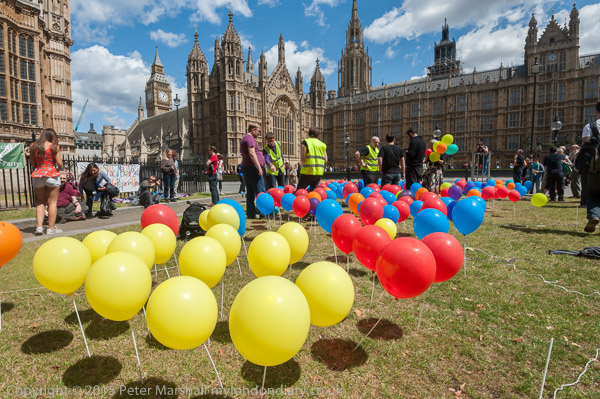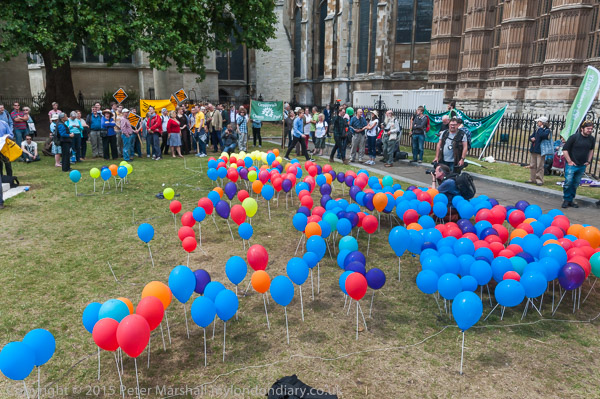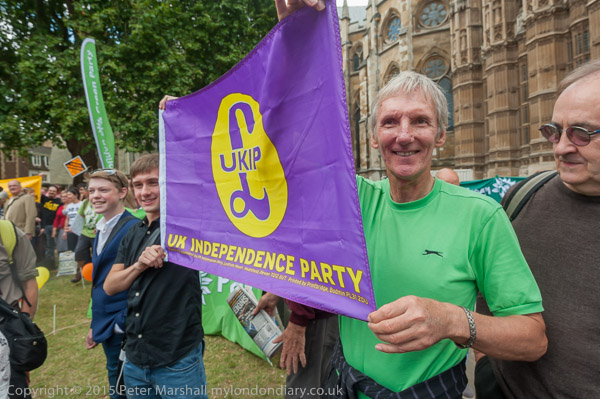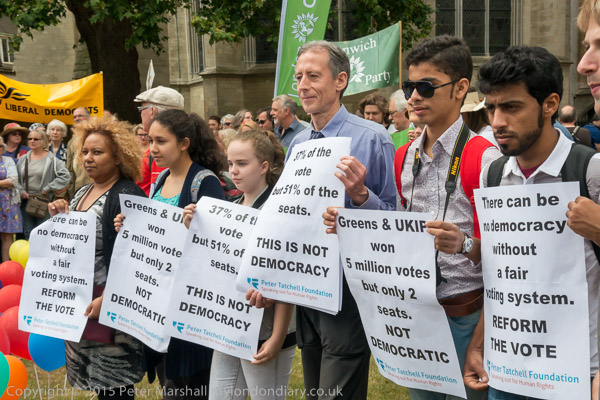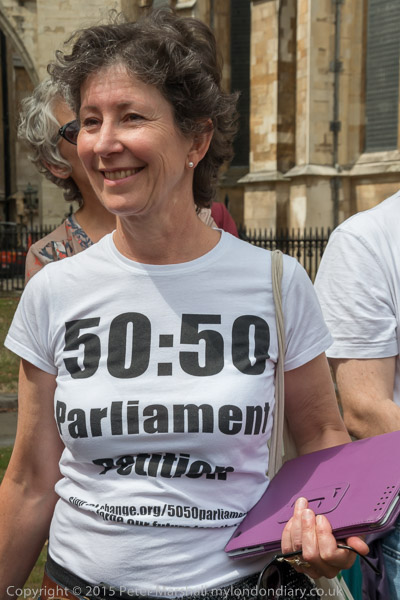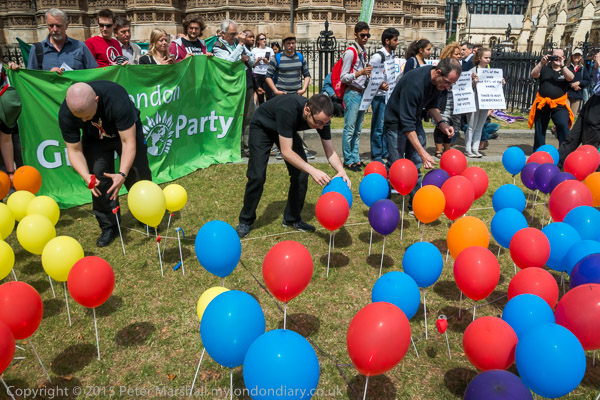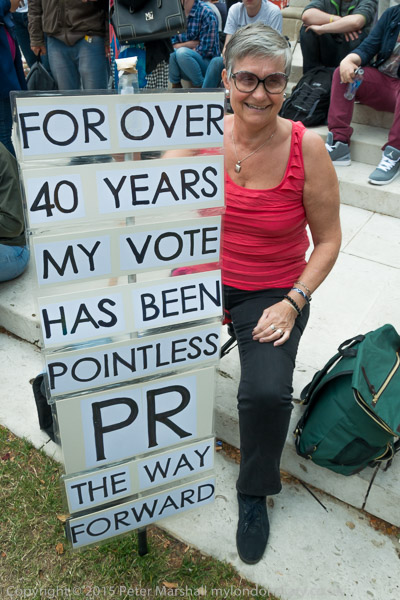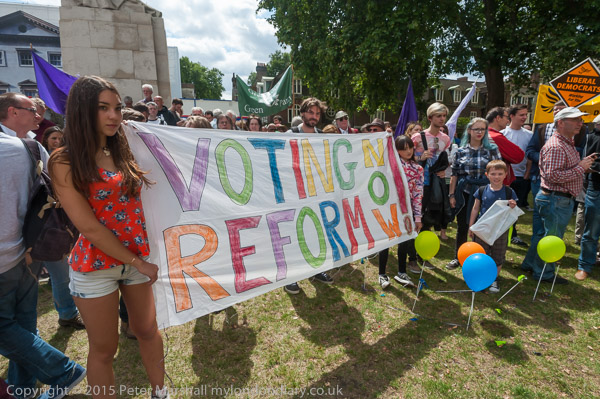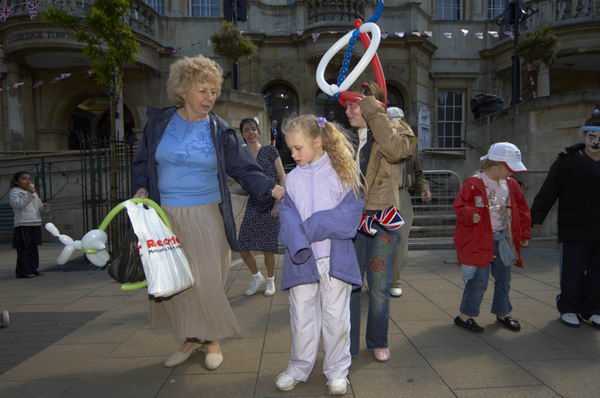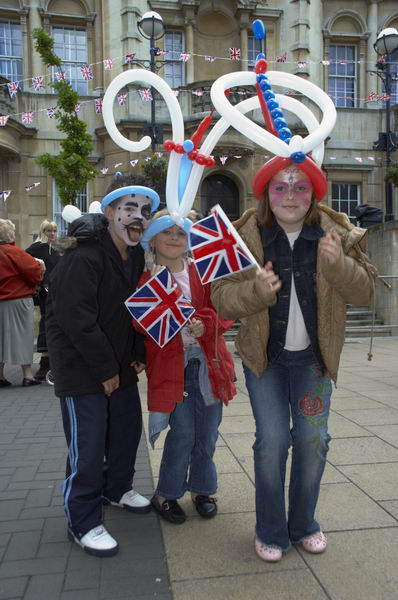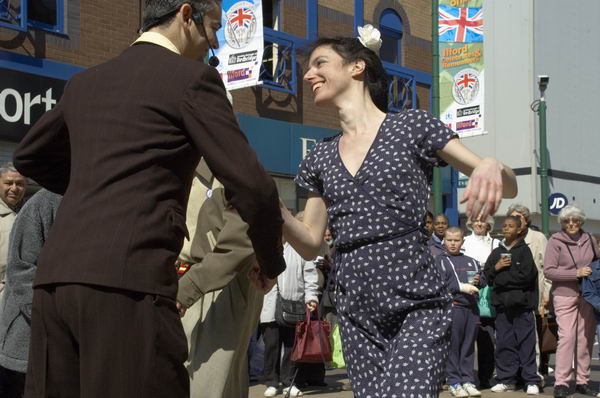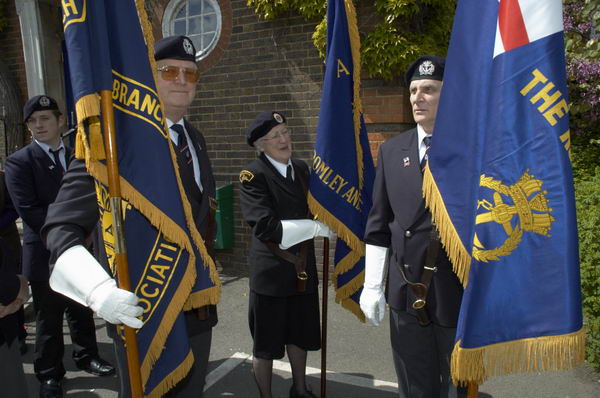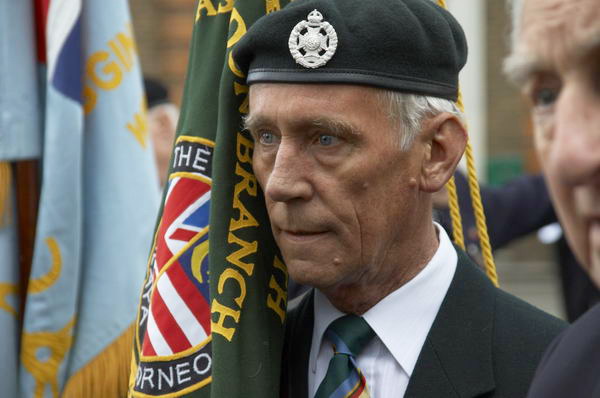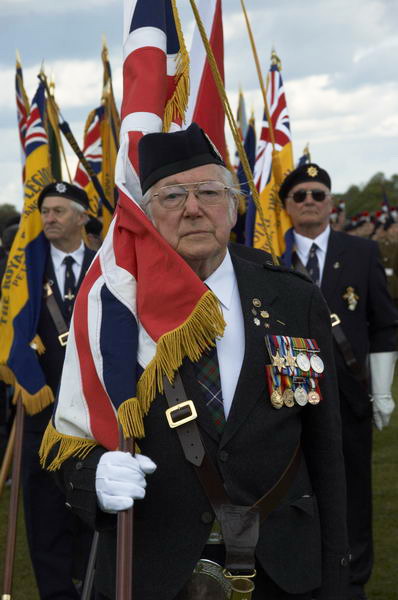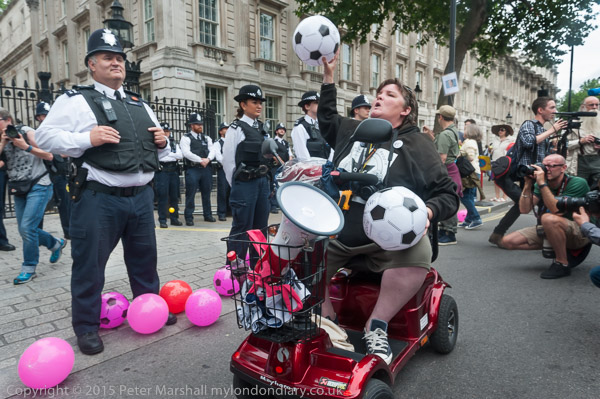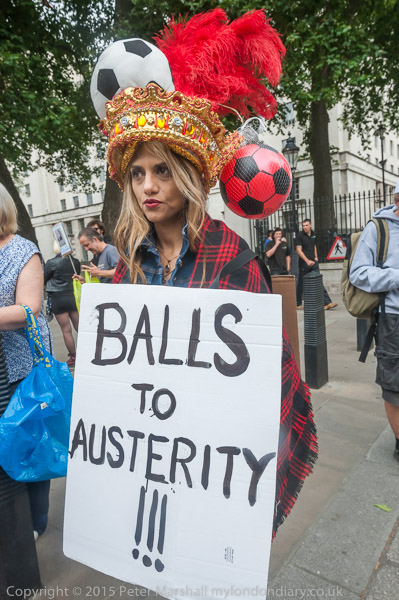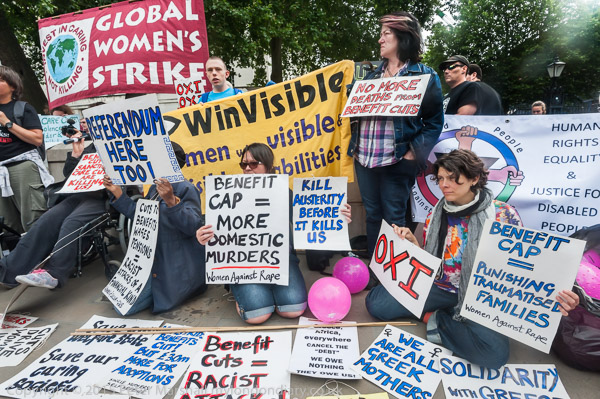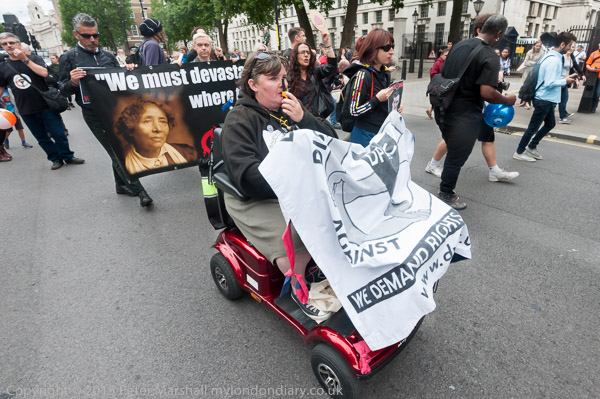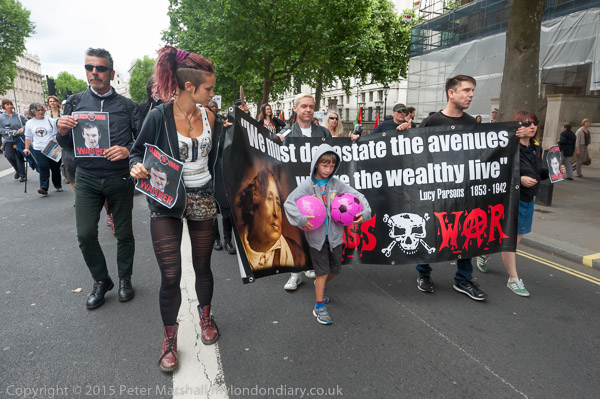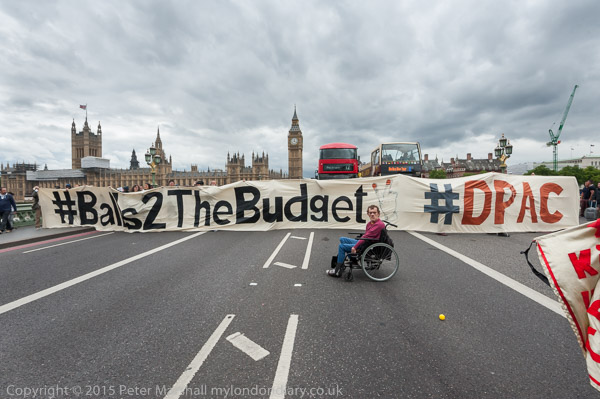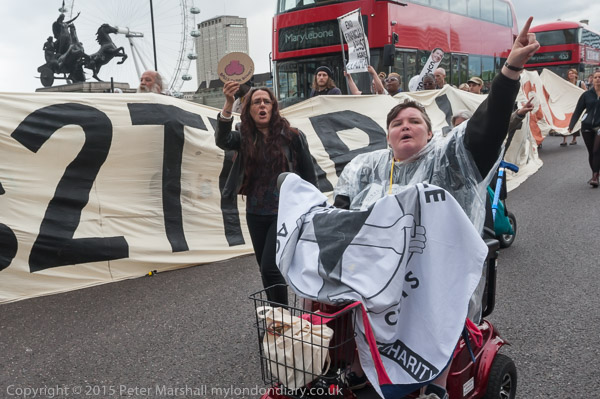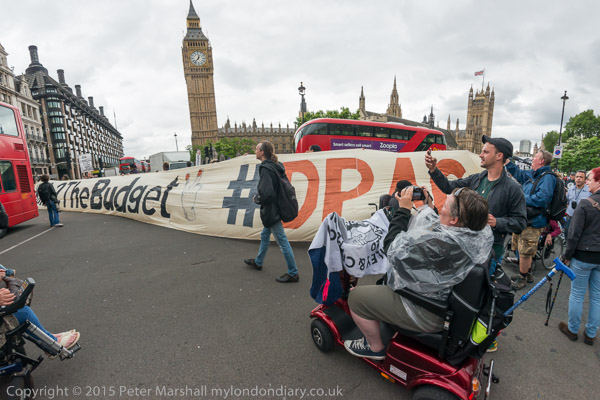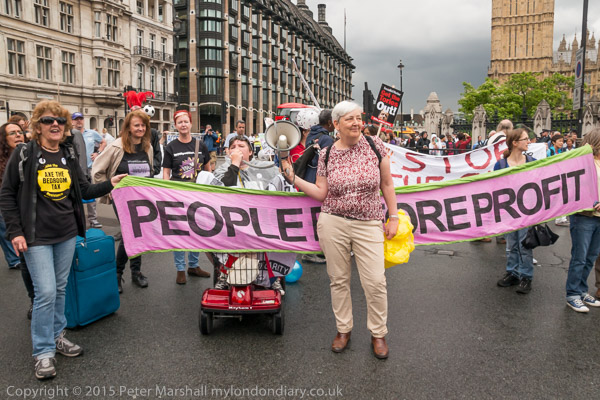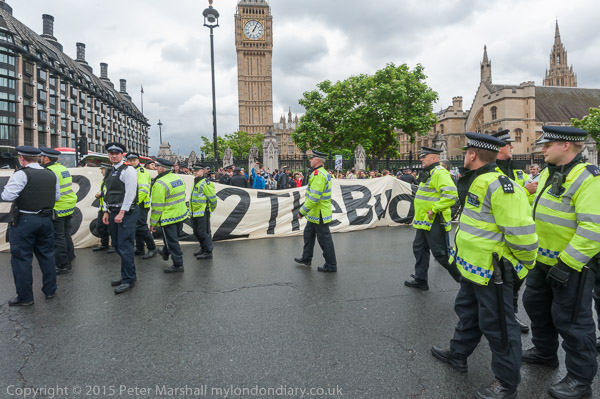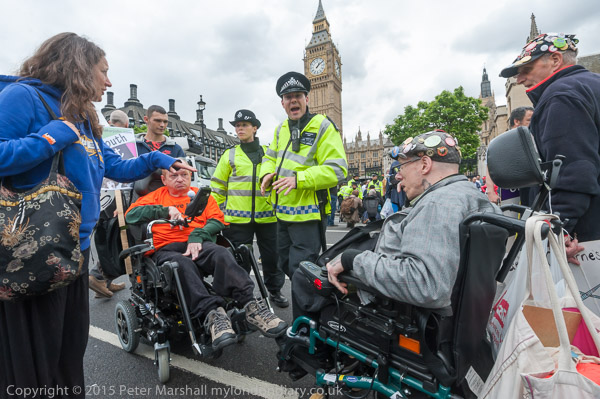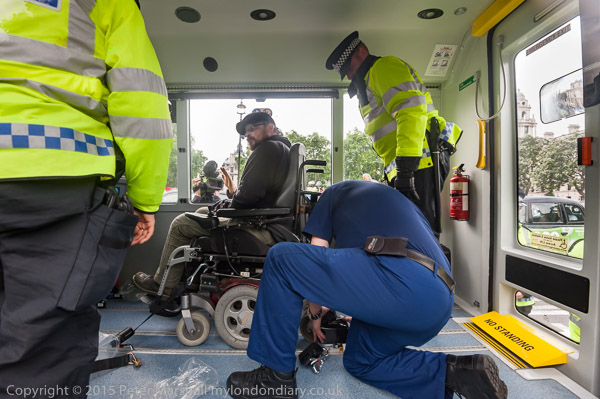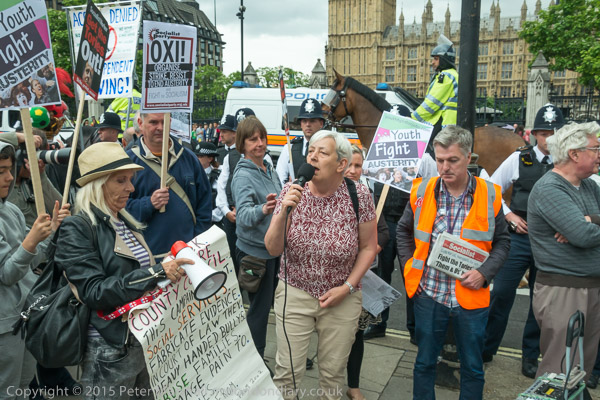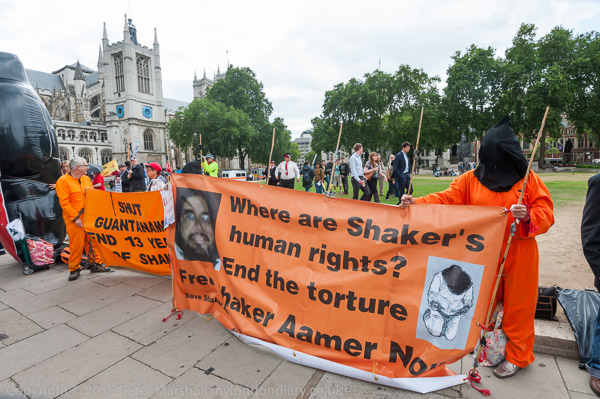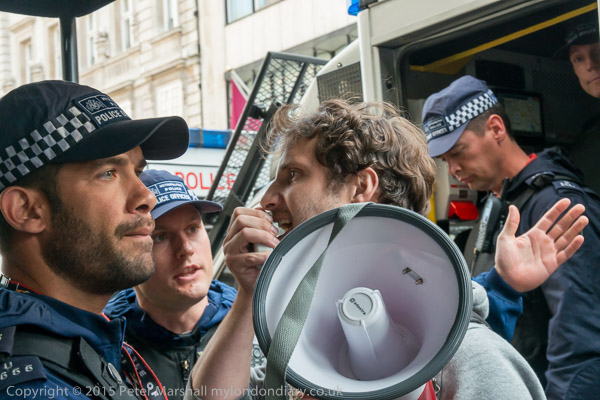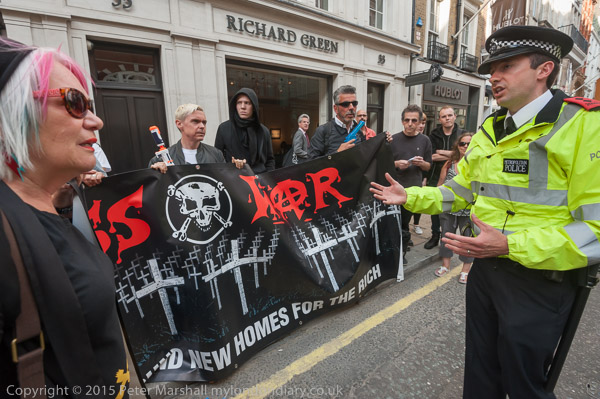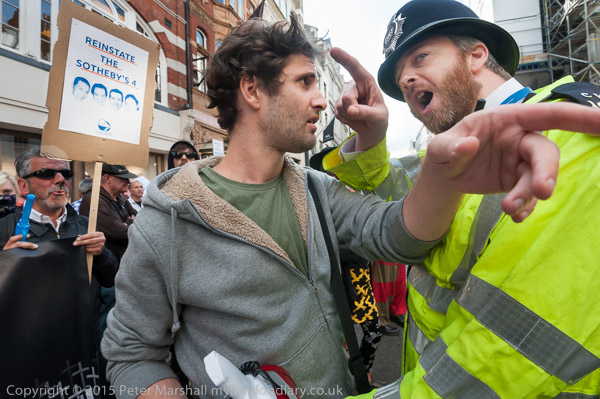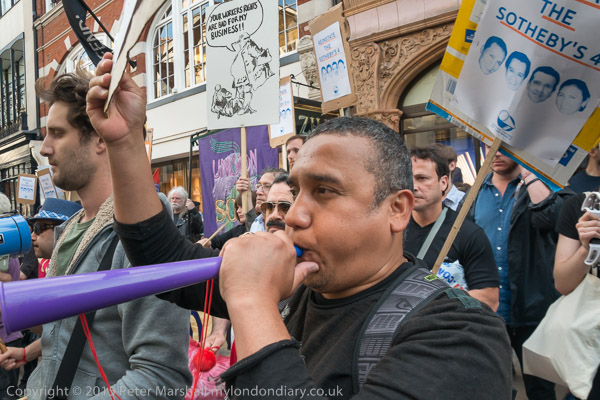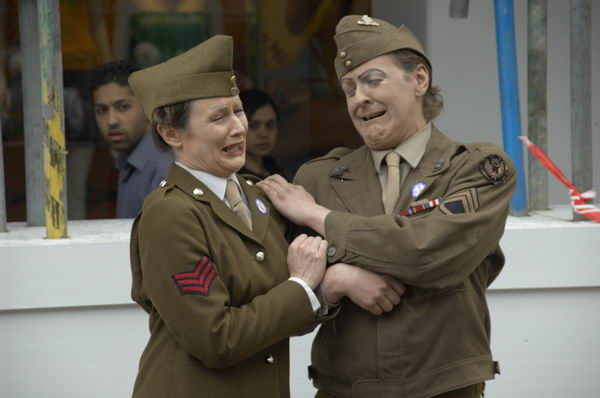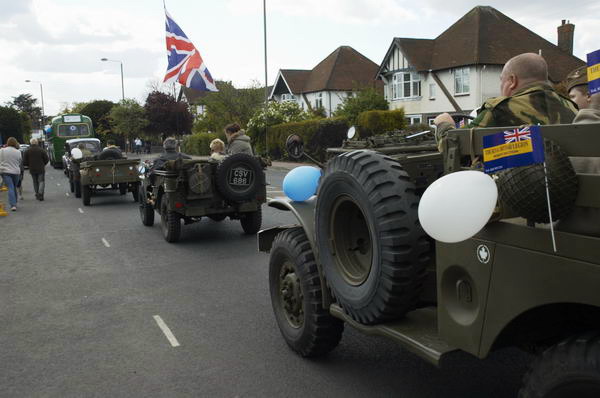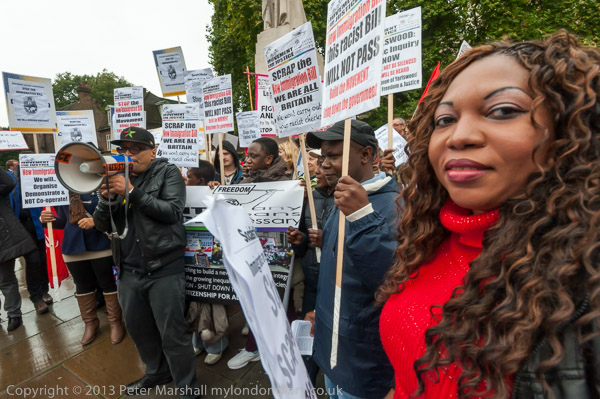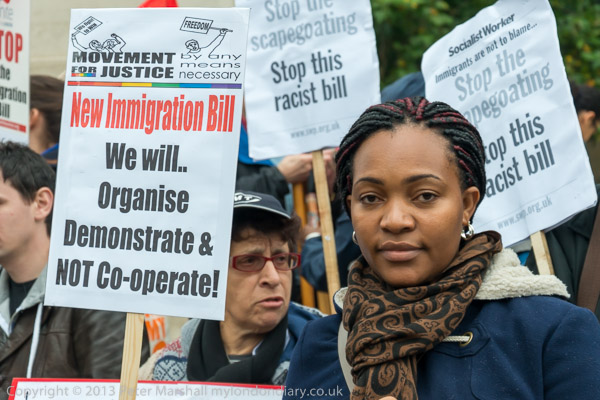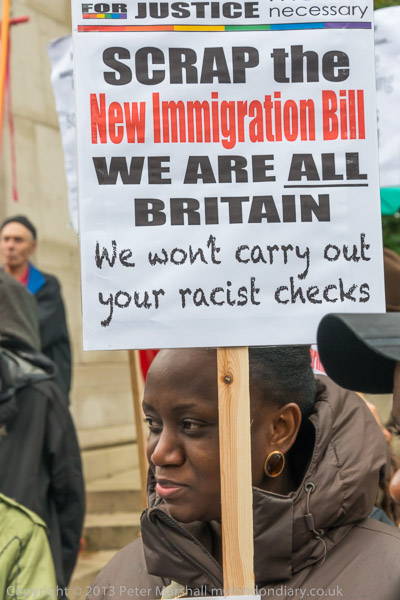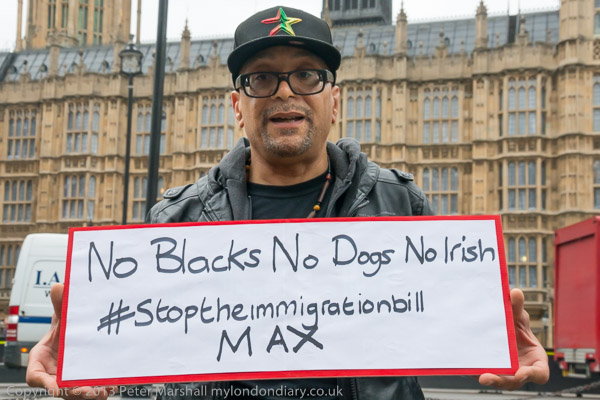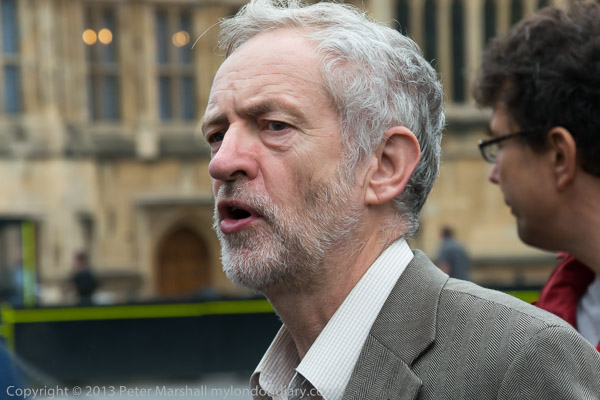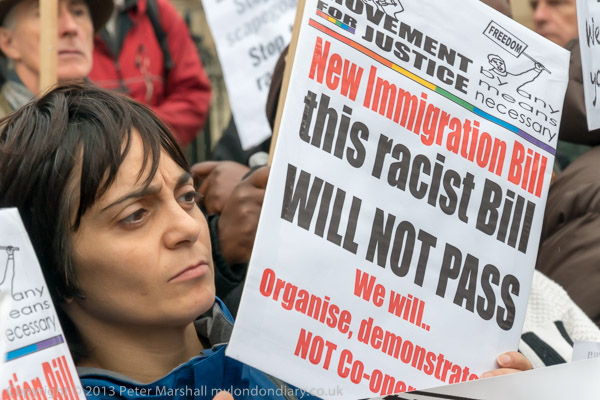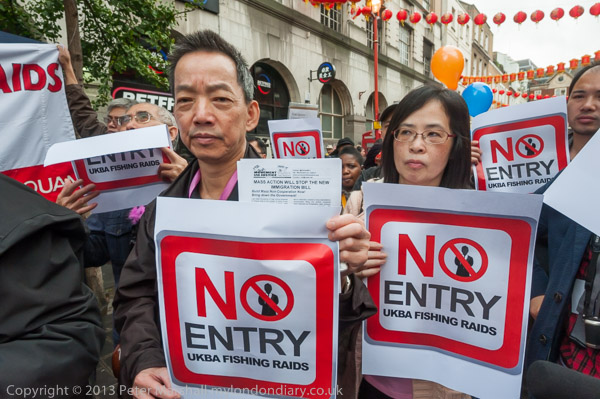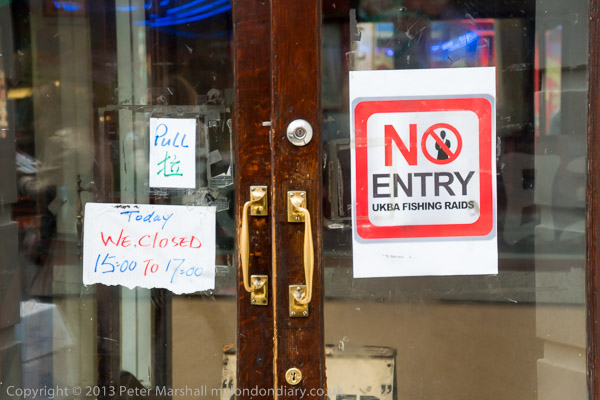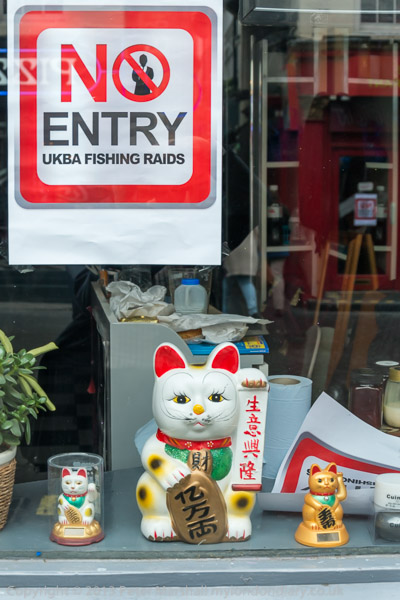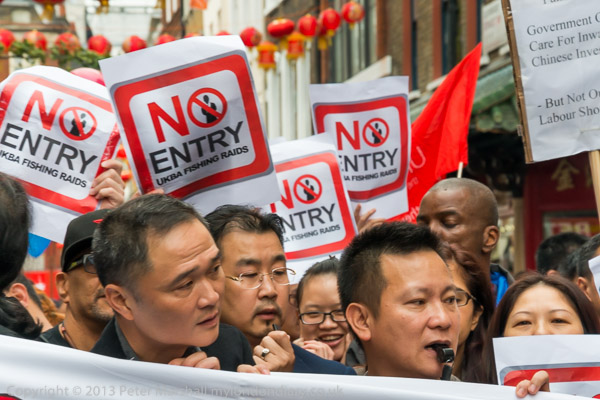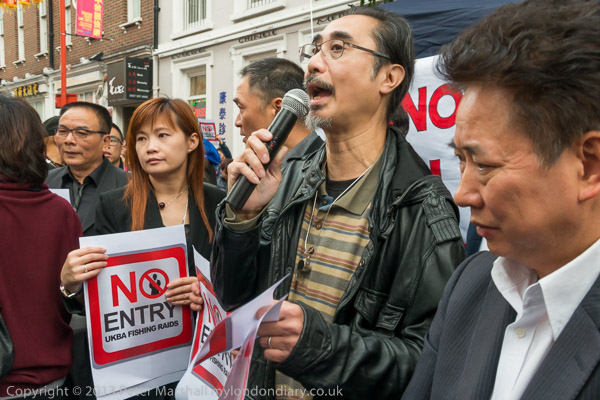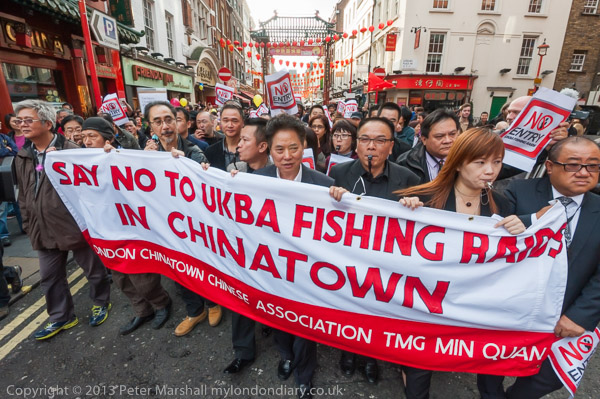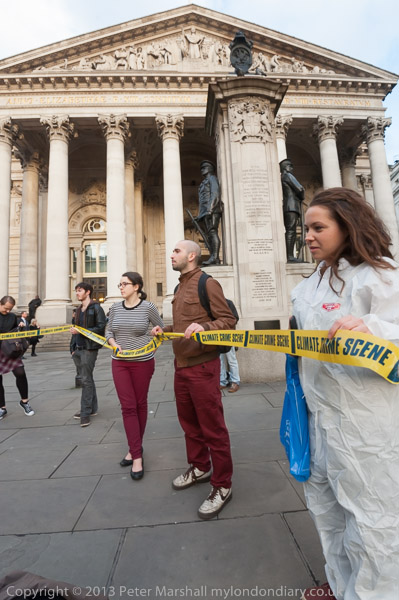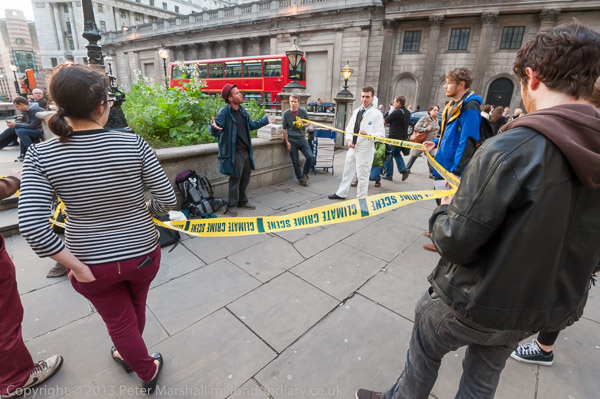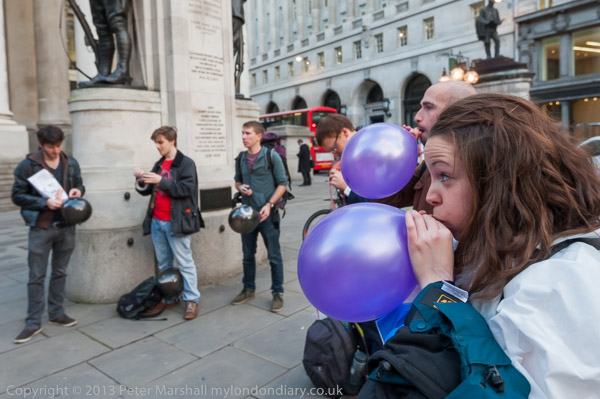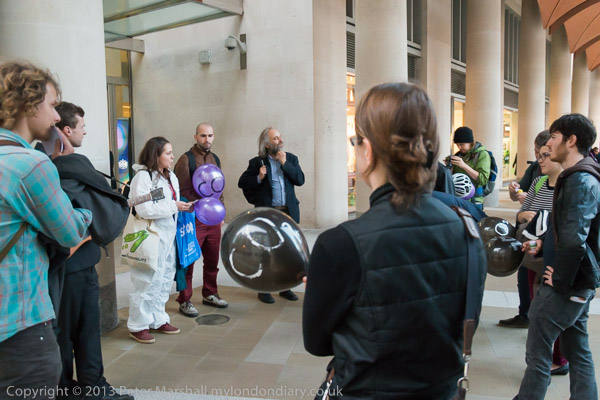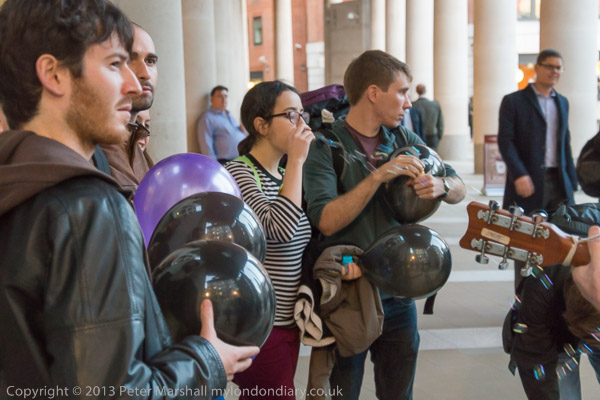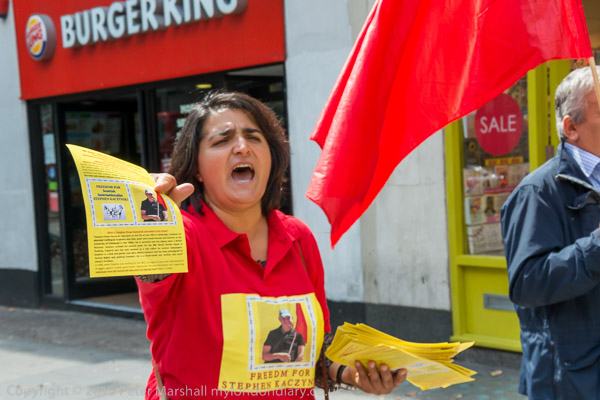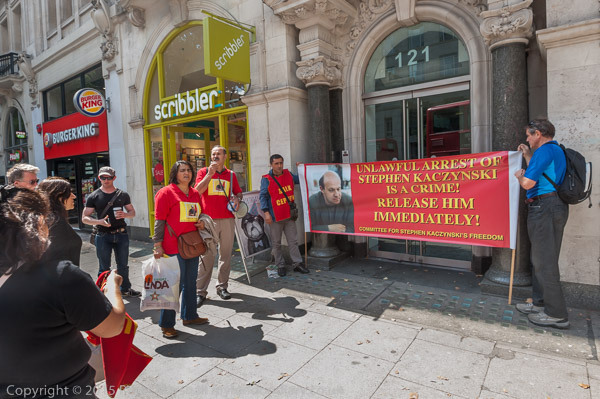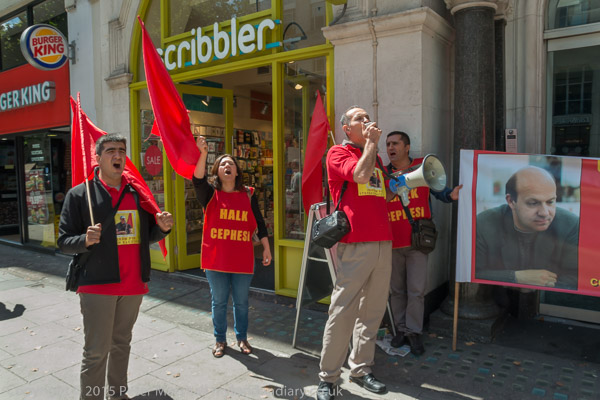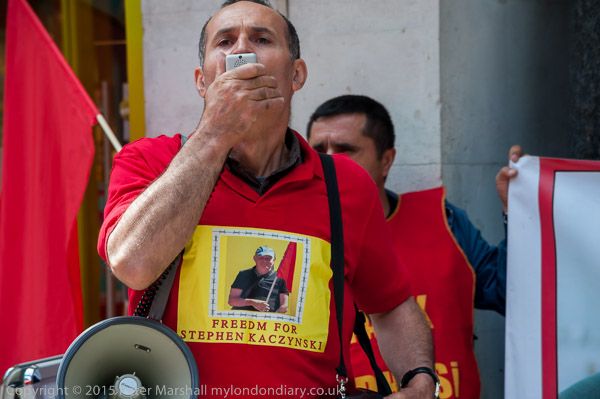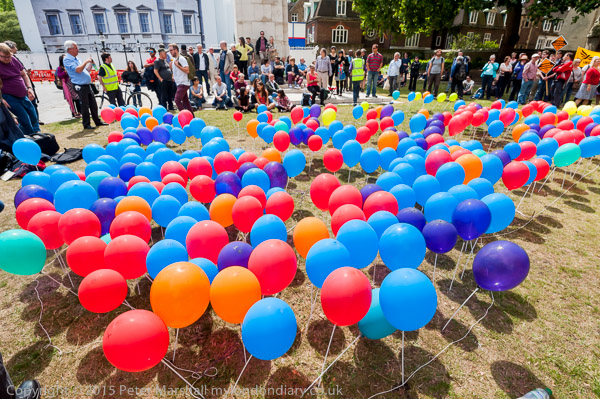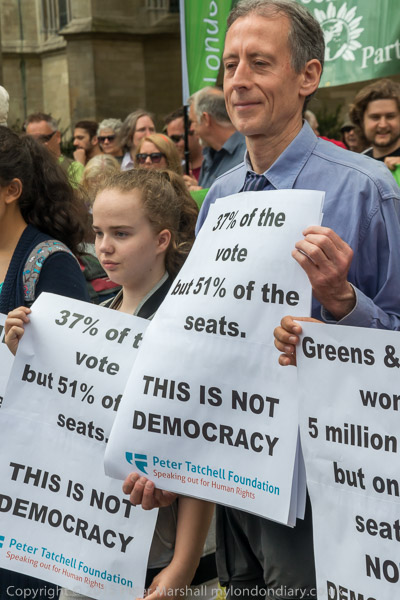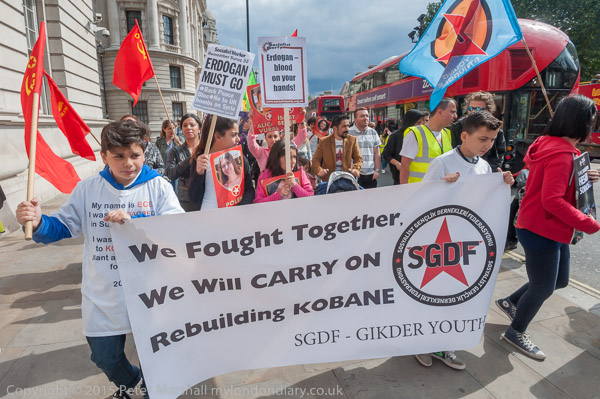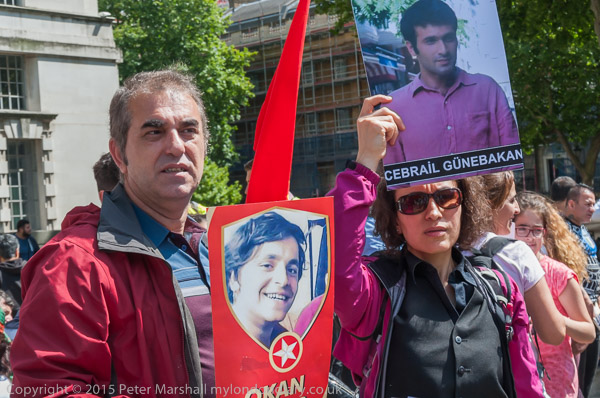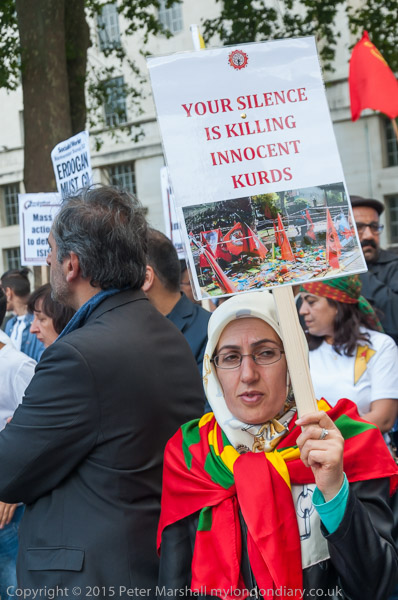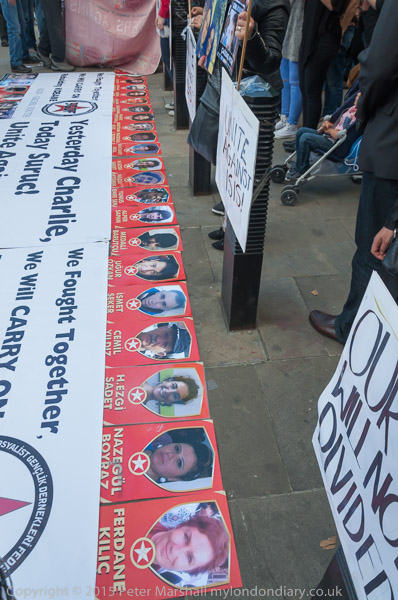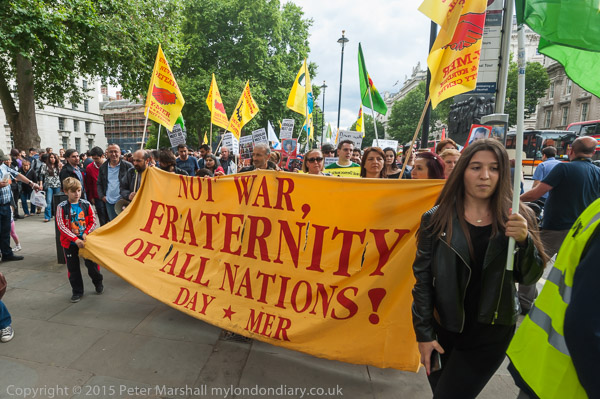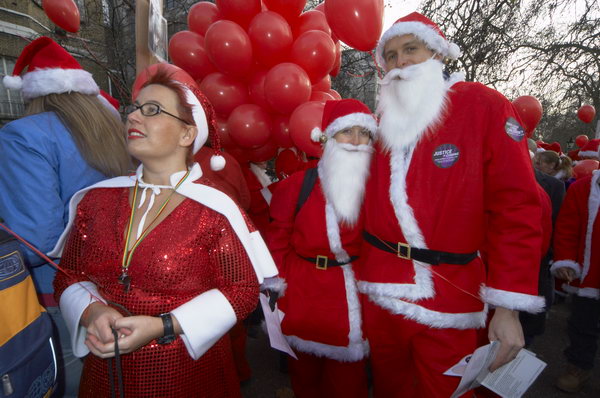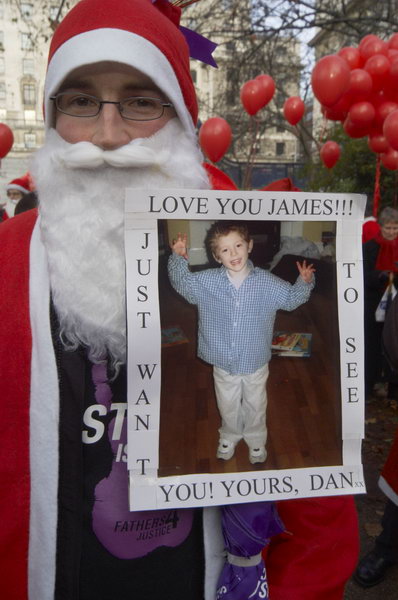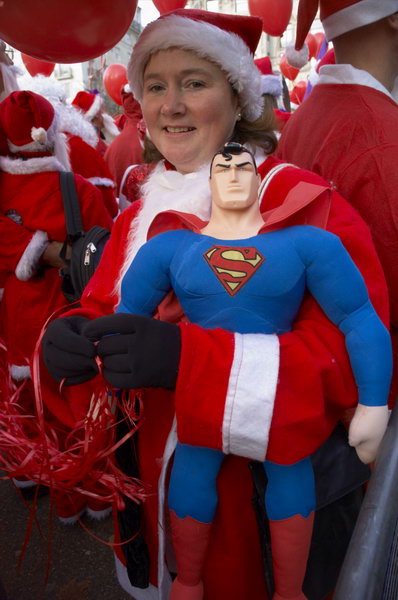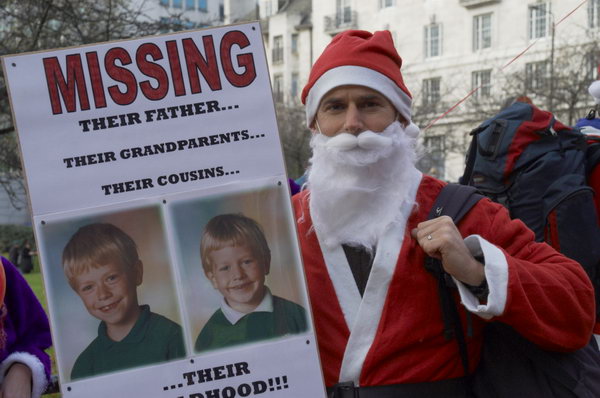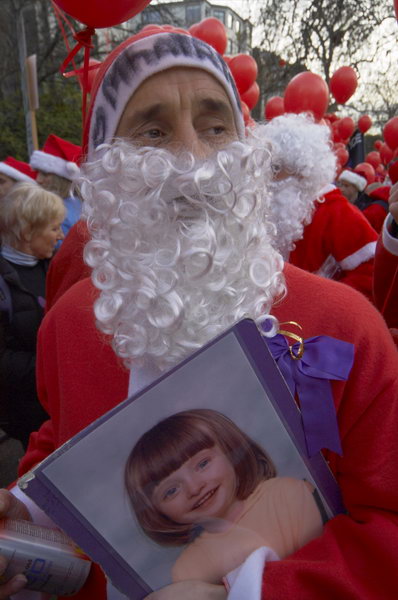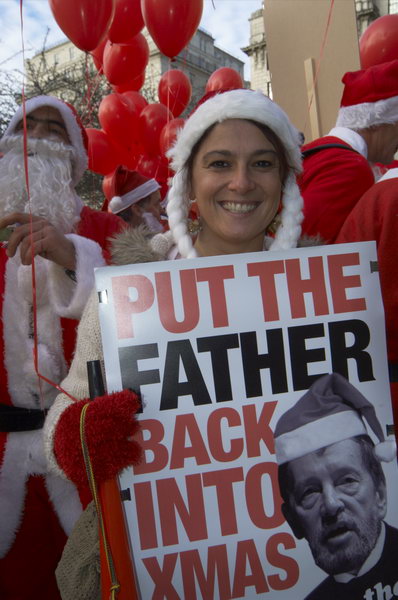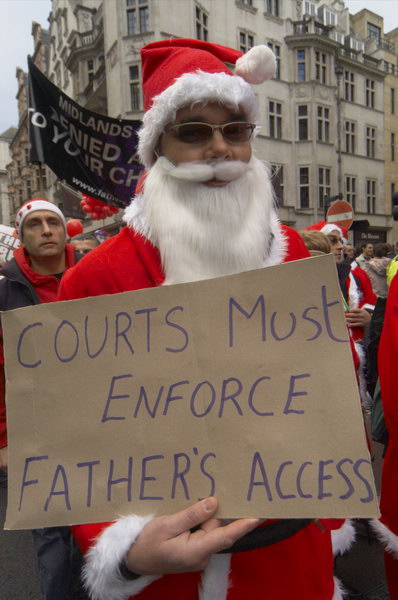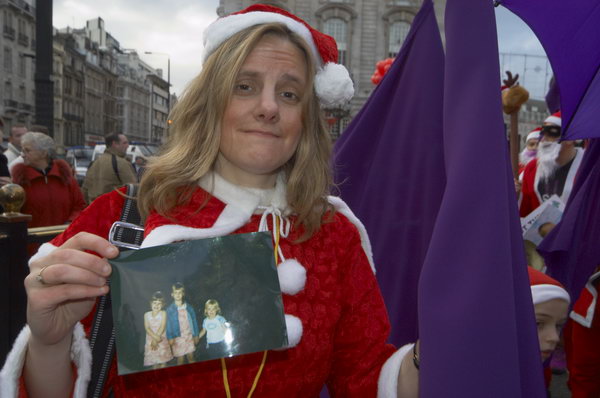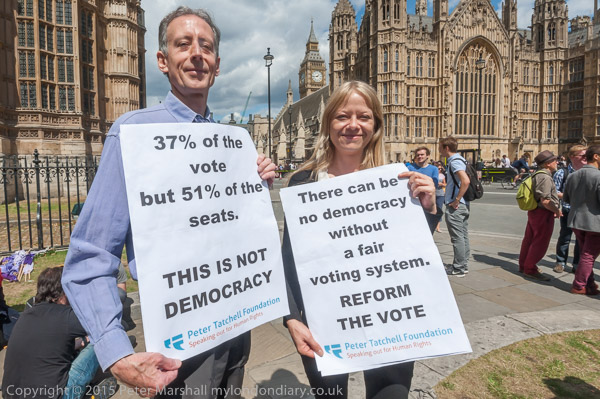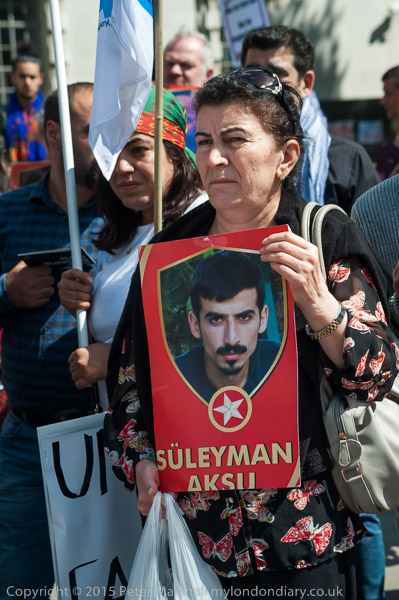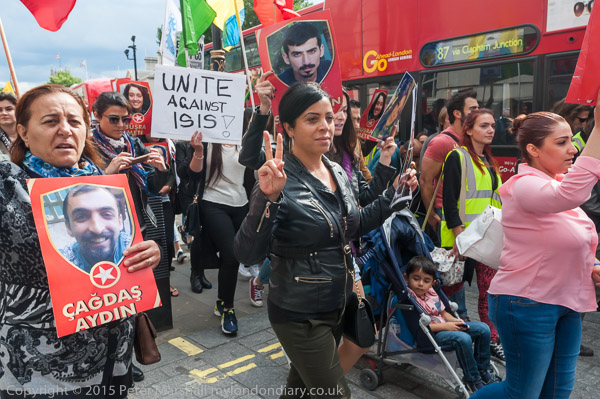King’s College Divest Oil & Gas Now: On Thursday 9th February a colourful protest on the pavement in front of the college’s main buildings on London’s Strand called for the college to disinvest from fossil fuels.
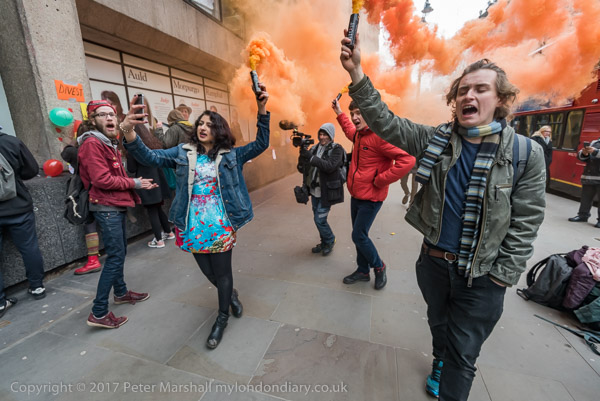
The world desperately needs to move away from burning coal, oil and gas for energy production and transport, as has been clear for at least the last 30 years and recent temperature rise and increasing incidence of disruptive fires, floods and other extreme weather events make impossible to ignore.
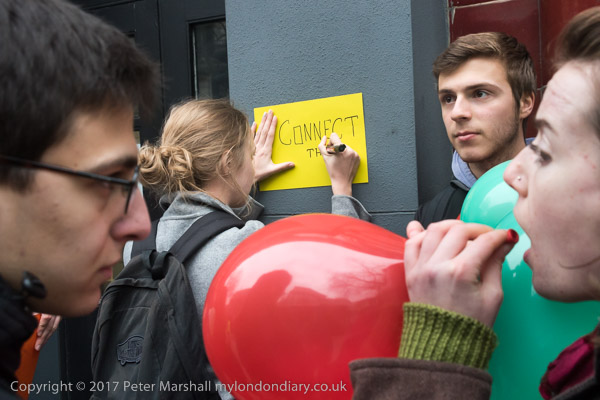
Yet governments around the world largely continue to ignore this, or make attempts which are far too little and far too late, with the recently elected demented US president even determined to increase his countries emissions, led by the lobbying of the US industry only interested in its own short-term profits.
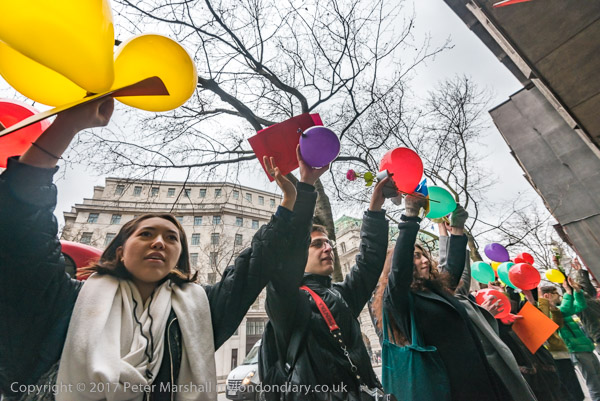
Let the world burn seems to be the message from the “ultra-wealthy stakeholders” while they plan their doomsday bunkers in the USA, Alaska or the Antarctic complete with military security forces to keep out the raiders and angry mobs.
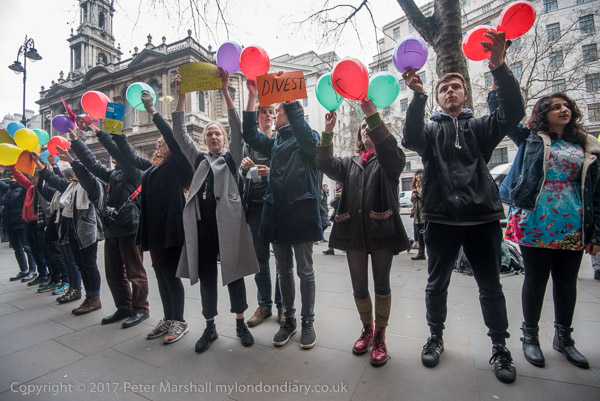
Yet the UK financial sector still enables to extraction of more fossil fuels which endanger the future of our civilisation and human life on the planet. Banks still bankroll them, insurance companies still insure their climate destroying activities and many respectable organisations still invest in them, including pension funds, though increasingly investors are divesting.

And one that has now divested is King’s College, who state: “In 2017, King’s committed to full divestment from all fossil fuels by the end of 2022. We achieved this target in early 2021. King’s also does not invest in tobacco and armaments. In 2023, we reached the target to invest 40% of our endowment in investments with socially responsible benefits two years early.“

Although I suspect King’s would say that this protest had no effect on their decision, I’m sure that this campaign and this very public protest was a major factor in moving them in this direction.
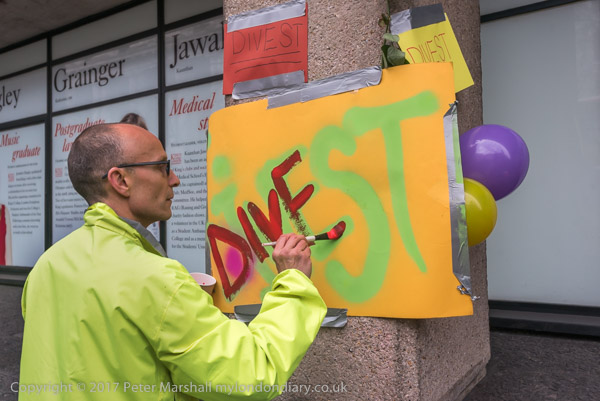
And it was successful because it was noisy, public and colourful, employing the kinds of methods that led the Tories to bring in new laws restricting our rights to protest and giving the police new powers to try to prevent effective protest. We still have the right to protest but are now expected to do so discretely.
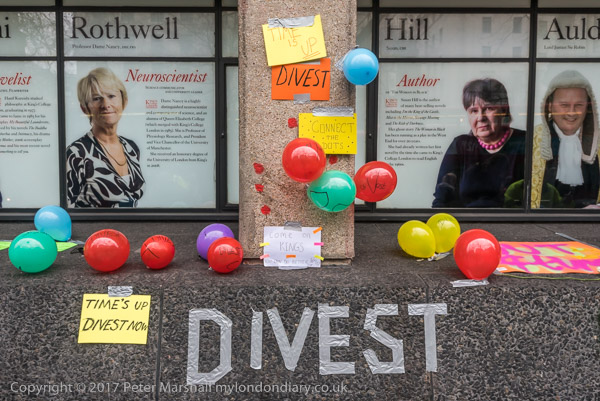
The one arrest of those taking part in the Stand Up to Racism protest a few days ago on February 1st was of one of those who lit a smoke flare, and similar arrests have been made at other recent protests. Setting off of fireworks on our streets has been illegal since 1875, but only recently have police begun to enforce this against the use of distress flares in protests.

People have been arrested for sticking things on walls and windows, even though they can be readily removed without damage.

In this protest police attempted to take the names and addresses of those who had made small blobs of colour using washable paint on a concrete pillar. This was done as a gesture of solidarity with PhD student Roger Hallam, one of the leading campaigners aat King’s who was suspended by the college for writing “Divest From Oil and Gas Now. Out of Time!” in washable paint at an earlier protest. Like the blobs this had washed off easily without trace, as was other painting I photographed him doing and being arrested for in the ‘Life Not Money’ protest at nearby LSE a couple of months later
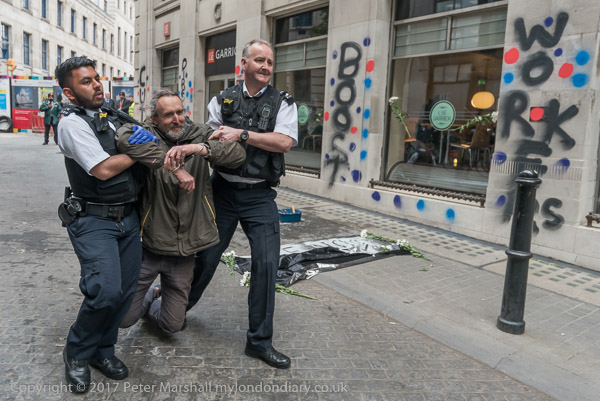
Roger Hallam, one of the co-founders of Extinction Rebellion, Insulate Britain and Just Stop Oil, is now serving five years in prison after being convicted of conspiracy for organising protests to block the M25, a draconian sentence for a peaceful campaigner. Sixteen Just Stop Oil protesters were given jail sentences last year for peacefully protesting in response to the climate crisis and at their trials were prevented from defending themselves by explaining their motives to the jury. Others are being held on remand for long periods. We now have political policing, political trials and political prisoners in the UK.
Flickr – Facebook – My London Diary – Hull Photos – Lea Valley – Paris
London’s Industrial Heritage – London Photos
All photographs on this page are copyright © Peter Marshall.
Contact me to buy prints or licence to reproduce.
